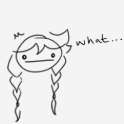Observing Passover
Learn more about this Jewish holiday!
April 3, 2019
On the evening of April 19th, Jews across the world will begin to observe the festival of Passover (Pesach in Hebrew), commonly known as the Festival of Matzah, the Festival of Spring, and the Festival of Freedom.
Passover is dedicated to retelling the story of the slavery of the Jews in Egypt and their exodus from Pharaoh’s rule in the land of Egypt.
Pesach begins with a seder, the Hebrew word for order, which is a ceremonial dinner. In addition to the dinner, the seder includes 14 ritualistic sections.
At a seder, Jews dip a green vegetable in saltwater as a representation for the tears of slavery and the joy of springtime. Similarly, horseradish or another bitter herb is dipped in charoset, a mixture of apples, nuts, and sweet wine and eaten as a representation of the joy of freedom and the bitterness of slavery.
During the seder, Jews also drink four glasses of wine as a representation of the four promises made to the Jews by God in the book of Exodus. At the seder, the story of Passover is retold at length as well.
Each seder is guided by a book called a haggadah, which directly translates to retelling, as the purpose of the seder is to retell. It is important that the story is written in first person, “We were slaves in Egypt,” so that Jews never are removed and think of it only as a struggle of past generations. The haggadah contains the story, blessings, songs like “Avadim Hayinu” (We were Slaves) and “Dayenu” (It would have been enough), and the four questions which ask and explain why this night is different from all other nights. It is tradition for the youngest child at the seder to recite the four questions.
During Passover, Jews don’t eat any foods that are leavened or have the potential to leaven or rise, including wheat, rye, spelt, barley, and oats. In many Jewish communities, this also includes rice, corn, beans, and lentils. Foods that are forbidden for the week of Passover are called chametz. The only wheat product allowed is called matzah, an unleavened bread known as the bread of affliction that is prepared in less than 18 minutes from start to finish.
Many Jews have separate sets of dishes for Passover to prevent cross contamination between chametz and foods that are kosher-for-Passover.
Although observing Passover is by no means an easy feat, it is an incredibly important festival that commemorates the pain of Israelite slavery and the values of compassion and hospitality that Jews are expected to show to others, as Jews were treated poorly in the land of Egypt.






